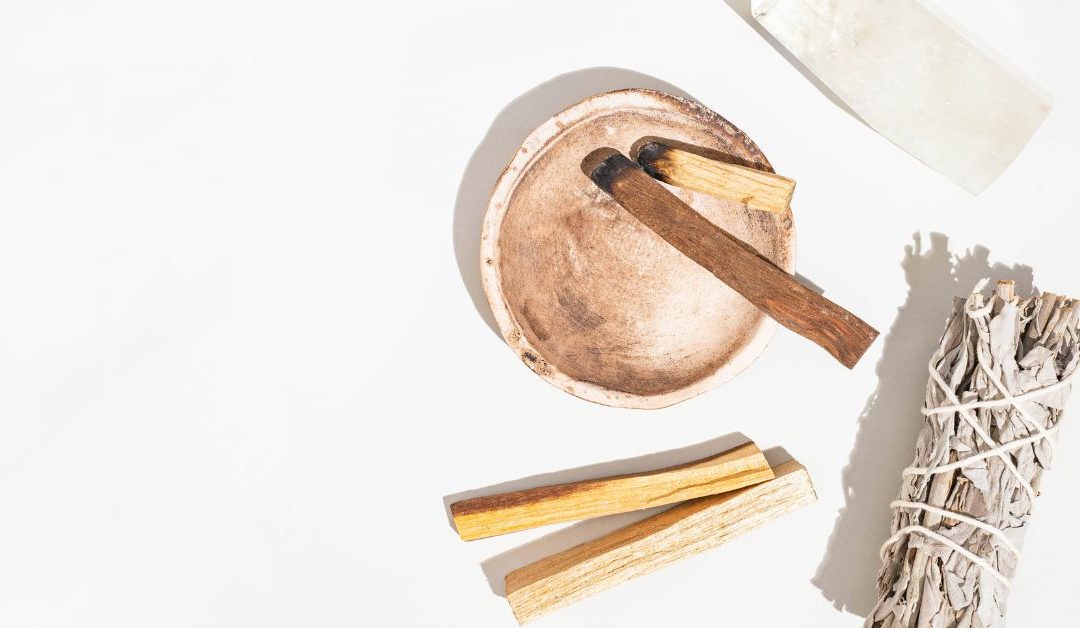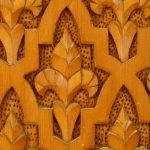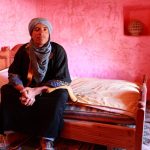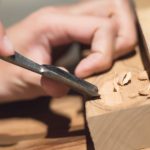For centuries, wood has been an integral part of Moroccan traditional medicine and folklore. It has many uses because of its special properties. People use it to heal wounds, make ointments and tonics, and protect against evil spirits.
In this article, we will explore the various uses of wood throughout Morocco’s history in both its medicinal and folkloric forms. We’ll discuss too how these ancient practices are still relevant today and what impact they can have on modern-day life.
The History Of Wood In Moroccan Medicine
In Morocco, people have used wood for traditional medicine and folklore for a long time. They used different types of wood to treat physical problems and for spiritual healing and protection.
The popular types of wood they used were oak, cedar, and juniper. They believed oak made you strong and helped heal wounds. Burning cedarwood during meditation or prayer was calming. Juniper eased pain for those with headaches.
They as well used other woods like olive tree bark, eucalyptus leaves, and rosemary twigs for medicine. They turned olive tree bark into powder and took it for digestive issues. Boiling eucalyptus leaves in water helped with cold symptoms. Rosemary twigs were for massages or baths to relieve muscle soreness.
Now, let’s look at some specific types of wood that are still used today in Moroccan traditional medicine practices.
Types Of Wood Used In Traditional Medicine
Wood has been important in Moroccan traditional medicine and stories for a long time. People use aromatherapy, herbs, and other remedies to treat illnesses, and wood is a big part of these treatments.
One example is cedarwood oil, which is much used for healing in Morocco. It’s known for strength and protection, and it helps with inflammation when inhaled.
Different kinds of wood are then used in various regions of Morocco. Hardwoods like Oak and Cedarwood are good for making containers, utensils, and tools. They’re as well used for burning incense or mixing herbs to make strong remedies for illnesses.
Softwoods like Juniper and Cypress can absorb essential oils faster because of their porous surface. This makes them great for aromatic therapy, as they release scents into the air.
You can find these woods in forests and markets all over Morocco. People have a lot of options when gathering ingredients for their treatments.
Moroccan healers use each wood’s special qualities to create personalized treatments for patients. By knowing how different woods help with different problems, they can make people feel better using old and new ideas.
Wood has been helpful in traditional medicine for a very long time, and it’s still important and useful today in Morocco.
The Benefits Of Wood In Healing
People in Moroccan traditional medicine and folklore have used wood for centuries. Its usage is wide-ranging, from spiritual cleansing to aromatherapy. Here we explore some of the benefits of wood in healing:
| Benefits | Description | Example |
| Spiritual Cleansing | The burning or aromatic herbs on a piece of wood brings peace and harmony | Burning incense over a wooden bowl filled with water |
| Aromatherapy | Using essential oils extracted from plants and blending them with wood can help ease stress | Mixing sandalwood oil with Borassus flabellifer (doum) wood chips |
| Protection Against Evil Spirits | People believe that wooden talismans protect against evil spirits | Hanging cedarwood pieces around doorways as an amulet |
Traditional healers have long revered wood for its medicinal properties. They use its scent, texture, and color to treat physical ailments. Wood plays a vital role in connecting people to their environment and protecting them from supernatural forces. Because of its many uses, wood is still used today in medical remedies and religious rituals in Morocco.
Wood As A Protection Against Evil Spirits
In Morocco, wood is much believed to have special powers against evil spirits. To protect themselves and their homes, families hang wooden charms and talismans near entrances. These symbols contain powerful words like ‘Shahid,’ meaning “guardian” in Arabic.
Wood is as well thought to have healing powers. Some healers believe rubbing a wooden spoon on the body can counteract negative energy. Burning cedarwood incense to purify the air in sickrooms. Villagers use wooden tools in rituals to restore health to troubled souls.
This ancient belief system goes beyond physical ailments and affects people’s fate. Some believe certain woods can reverse curses or dispel dark magic spells.
These practices are much rooted in Moroccan folklore and remain important in modern culture. These are protecting people from harm and restoring balance in society.
Wood For Intestinal Disorders
For many years, people in Morocco have used wood in traditional medicine to treat stomach issues.
They make herbal teas and burn incense with wood-based ingredients to help with digestion. Depending on the stomach problem, they either brew or burn these natural remedies.
For example, they boil cedar twigs in water to drink it and relieve cramps and indigestion. They dry out eucalyptus leaves and mix them into hot drinks like tea to reduce nausea or bloating.
Certain woods, like sandalwood, have a pleasant smell that helps soothe digestion problems. Plus, promote relaxation during times of stress or upset stomachs.
Using these ancient methods may bring relief from uncomfortable symptoms without needing medicines. Mixing traditional methods with modern approaches helps improve well-being through holistic treatments.
Essential Oils And Woods For Skin Disorders
For centuries, wood has been in use in Moroccan folklore medicine. This is to heal various health issues like stomach problems and skin conditions.
People have used different types of wood with special scents and spiritual properties for healing. One example is the essential oils from plants.
Cedarwood, sandalwood, cypress, juniper, pine, and rosemary are some of the woods used in aromatherapy. This is to help with itchy and inflamed skin problems such as eczema and psoriasis.
The relaxing scent of these woods helps reduce stress as well. This is helpful for treating skin conditions along with other treatments.
Burning wood during spiritual ceremonies or rituals helps clear away negative energy. Plus, purify the air in homes and enclosed spaces.
These therapeutic benefits make wood an effective alternative medicine. Thus, people still use it today, even though it’s been in use for ages.
Wood For Respiratory Conditions
Wood has a long history in Moroccan traditional medicine. It’s used to treat respiratory problems by clearing airways and reducing inflammation.
Aromatherapy with wood-based oils or incense is popular to help with breathing difficulties. Some use wooden charms for spiritual healing and protection.
People use wood for respiratory conditions in the following ways:
- Inhaling steam from boiled wood chips to open up airways and reduce mucus.
- Applying essential oils from wood. Such as cedarwood, cypress, eucalyptus, juniper berry, and sandalwood to ease coughing.
- Drinking tea brewed with bark from certain trees to help with asthma.
- Using incense sticks made of nice-smelling woods like agarwood or rosewood to feel relaxed and breathe better.
This section explains how wood is often used in Moroccan traditional medicine and folklore. This is when it comes to helping people with breathing problems. Next, we’ll explore another area where wood plays a role – mental disorders.
Wood For Mental Disorders
Wood has been a part of Moroccan traditional medicine and stories for a long time because it can make people feel better in their minds and spirits.
Cedarwood, in particular, is important in Morocco because it can help people feel calm and strong. People can burn it or use it on their bodies to help with stress and anxiety.
Wood can make the air smell nice and comforting, which can help people feel better when they are sad or upset.
Thus, wood is a special material that has many positive effects on our well-being.
With this in mind, let us now explore how wood plays into traditional Moroccan cuisine.
Wood In Traditional Moroccan Cuisine
Wood is a big part of traditional Moroccan cooking. It’s used for cooking and preparing food, providing great flavors and aromas. They use wood as fuel for open fires to keep a steady temperature and add smoky tastes to the food. They also use wood for making herbal remedies by grinding herbs with a mortar and pestle.
In Moroccan culture, wood is important for their sayings and stories. These proverbs give advice on living life with grace and humility. For example, “A potter’s hand can’t be possible to take away from its clay” means taking responsibility for your actions. Another proverb is about staying humble, “The tree does not boast about its fruits,” meaning to stay humble no matter how successful you are.
These traditional sayings still influence how Moroccans talk and remind them to stay grounded and humble. It shows how people in the past used natural resources like wood to survive and thrive.
Next, we’ll explore more about wood in Moroccan stories and sayings.
Wood In Moroccan Folklore And Proverbs
Wood is very important in Moroccan culture. It’s not only used in their food but in their stories and traditions too.
Magical rituals and herbal remedies in Morocco often involve wood, like juniper or cypress. These are present all over the country.
For example, juniper resin is for divination, and cypress oil helps with healing. People as well use wooden objects, like amulets, to protect against bad spirits and bring good luck.
There are many sayings about trees in Morocco, like “a tree without roots will not stand.” These sayings pass on important lessons and values to new generations.
Frequent-Asked Questions
What Is The Most Common Type Of Wood Used In Moroccan Traditional Medicine?
Cedar wood is one of the most used types of wood in Moroccan traditional medicine.
Its cultural roles and religious beliefs make it an important part of the country’s medicinal tradition.
The cedar tree is in use for centuries to treat ailments ranging from anxiety to skin problems, as well as its use in spiritual rites.
It was much believed that burning cedarwood could purify a person or space while helping to protect against negative energy.
This ancient practice is still carried out today by many Moroccans who rely on natural remedies for healing.
What Are The Primary Differences Between Essential Oils And Woods Used In Skin Disorders?
Essential oils and woods used in skin care may seem similar, but they work in a different manner.
Herbal remedies with essential oils go deep into the skin. It helps with emotions, while wood-based treatments soothe and protect irritated skin.
Both remedies are good for eczema or psoriasis, but one might be better for you based on your needs.
Understanding how each treatment works will help you find the right one for you.
Which Specific Types Of Intestinal Disorders Can Wood Treat?
For many years, wood is in use in Moroccan traditional medicine and stories to treat stomach problems.
Two common stomach issues treated with wood are inflammation and blockage.
Inflammation happens when the stomach gets infected or irritated. By then blockage occurs when food can’t pass through.
Both problems can be uncomfortable, but using wood-based remedies can help feel better and heal. Some examples are poultices, tinctures, teas, and decoctions
What Is The Best Way To Use Wood To Protect Against Evil Spirits?
For hundreds of years, people in Morocco have believed that wood can protect them from evil spirits.
Many Moroccan homes have a wooden charm on their doors and windows to keep negative energy away.
People use wood in magical rituals, like hanging driftwood from their ceilings.
If you want to use wood for spiritual protection, you should burn incense and ensure that you bless the wood.
By doing these things, you can make sure you’re getting the most protection against evil.
What Are The Main Mental Disorders The Wood Can Treat?
Wood has long been in use as a spiritual medicine in Morocco, with many herbal remedies to treat mental disorders.
In traditional Moroccan folk medicine, wood is much believed to have the power to ward off evil spirits. Plus, protect against curses that can cause mental health issues like depression, anxiety, and paranoia.
Herbalists will often use various types of wood-based ingredients. Such as frankincense, sandalwood, myrrh, cedarwood, and juniper berries. They do this in combination with other herbs to create healing ointments or teas for those suffering from these ailments.
The natural anti-inflammatory properties found in wood are helpful too. They make it an ideal ingredient for treating physical pains associated with certain mental illnesses.
Wood’s ability to bring peace and balance makes it a powerful tool in helping people find relief from their struggles.
In Morocco, traditional medicine has been using wood for a long time. They use it to treat different illnesses like skin problems, stomach issues, and even mental health conditions. They too believe it can protect against evil spirits.
Cedarwood is the most used type of wood. It’s in about 75% of all Moroccan essential oils.
Using wood in Moroccan traditional medicine not only helps treat medical problems but also has a spiritual purpose. As scientists keep learning, they may find other types of wood that are as good or even better for treating different health problems.







